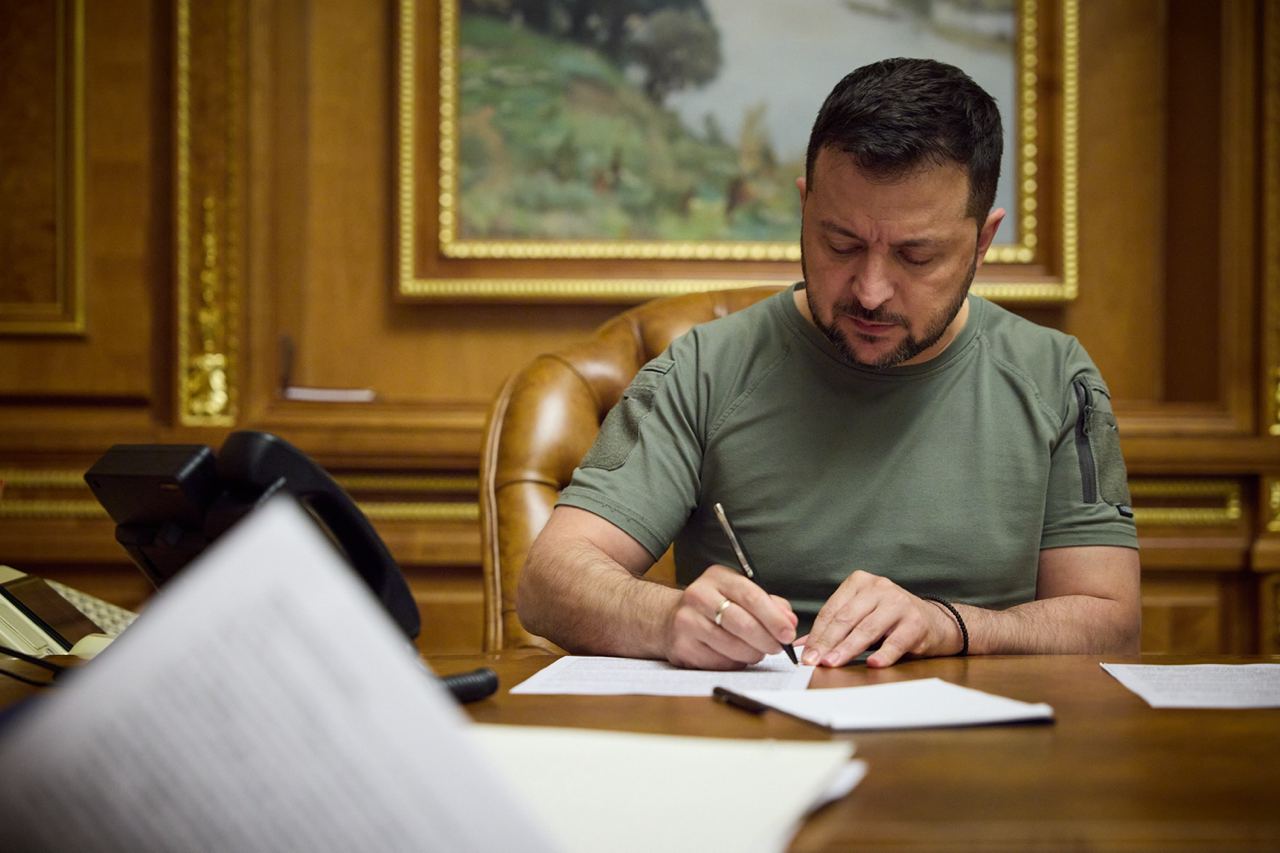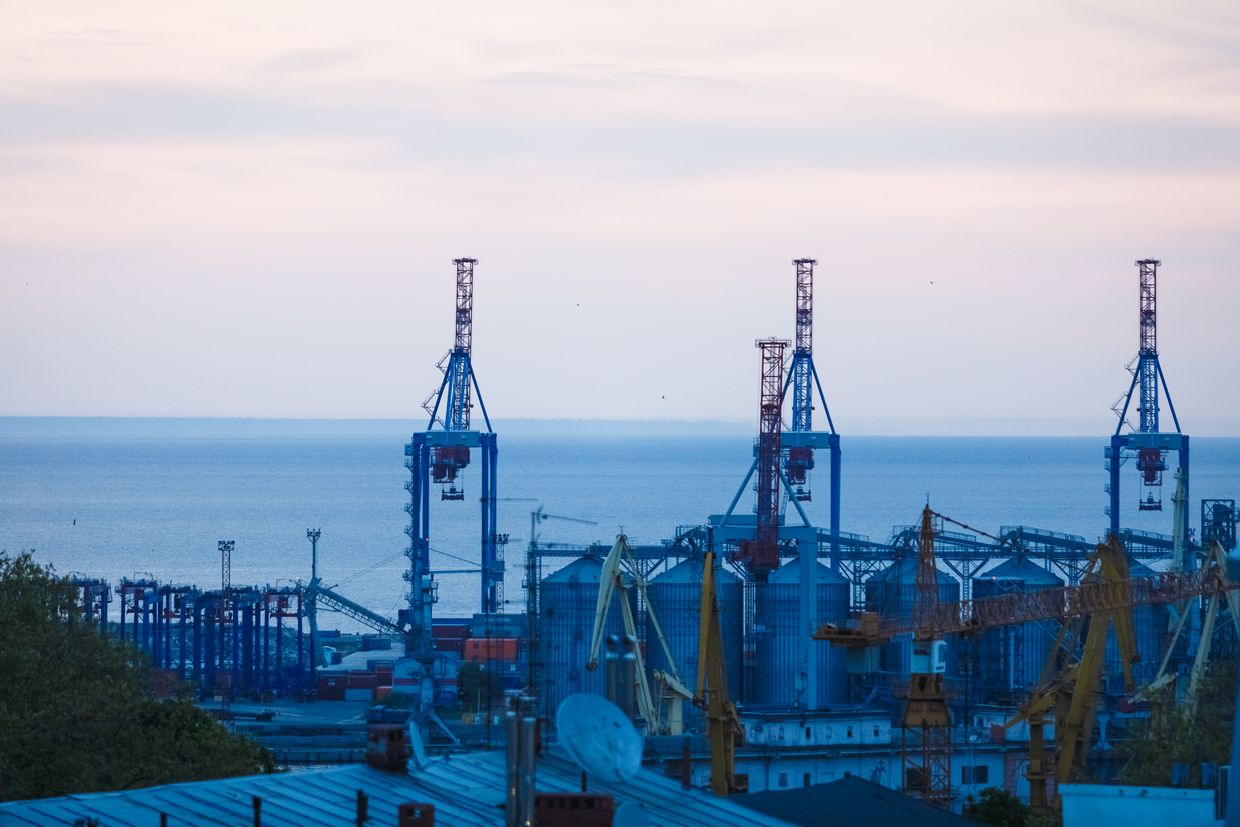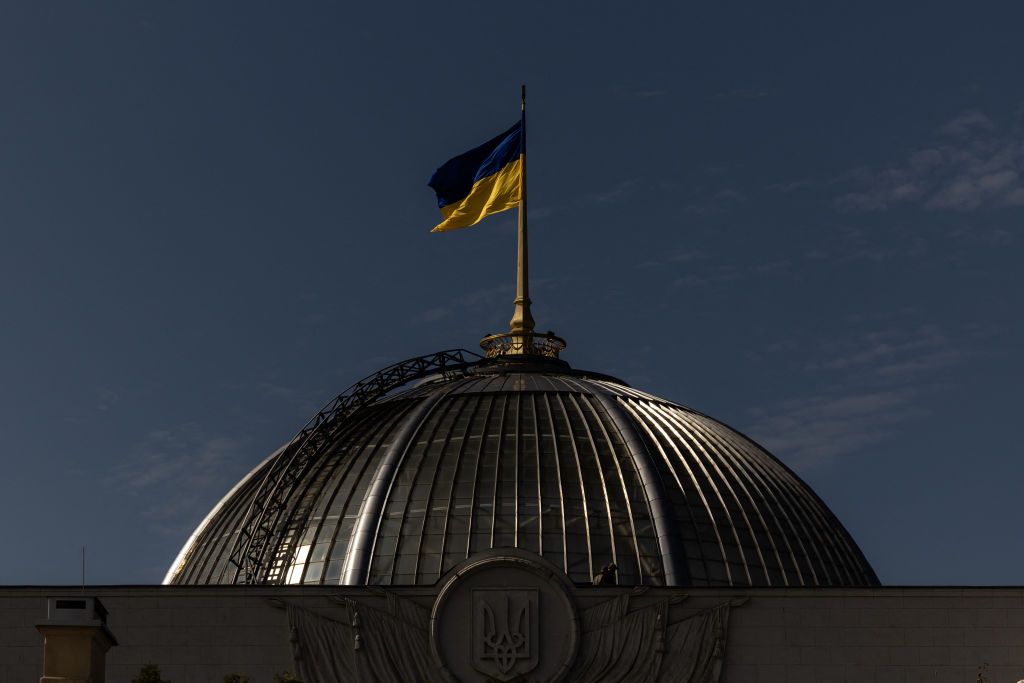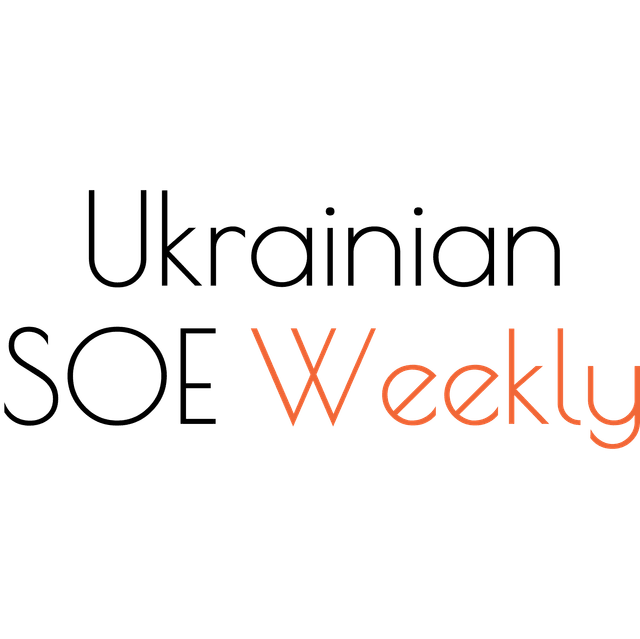Ukraine state-owned enterprises weekly — Issue 159

Editor’s Note: This is issue 159 of Ukrainian State-Owned Enterprises Weekly, covering events from Dec. 15-22, 2024. The Kyiv Independent is reposting it with permission.
Corporate governance of SOEs
Updated IMF Memorandum. On Dec. 20, the International Monetary Fund (IMF) published an updated Memorandum of Economic and Financial Policies (MEFP) following its sixth review under the Extended Fund Facility (EFF) program for Ukraine.
Ukraine’s commitment related to state-owned banks is as follows:
- All banks with majority state ownership will remain under the responsibility of the Finance Ministry. Any nationalized non-systemic banks will be immediately transferred to the Individuals Deposit Guarantee Fund (DGF) for resolution (Continuous Structural Benchmark).
As we reported in Issue 116, foreign investors had shown interest in acquiring Ukrgasbank and Sense Bank.
There are also several commitments related to SOEs that were not included as structural benchmarks:
- Review Cabinet of Ministers Resolution No. 777, which guides the appointment procedures for independent supervisory board members in SOEs, by September 2025 in consultation with IMF staff and international partners.
- Continue implementing related secondary legislation for Law No. 3587-IX, including having established a methodology for and subsequently conducting regular independent evaluations of SOE supervisory board activity.
- Implement the State Ownership Policy by:
- Classifying SOEs of strategic importance;
- Implementing the framework for privatisations (full or partial);
- Preparing a concept of consolidated SOE management;
- Finalising the legislation for the formation of mandatory supervisory boards, and evaluation of supervisory board activity;
- Establishing financial statements in accordance with International Financial Reporting Standards (IFRS) subject to an appropriate phase-in period; and
- Implementing SOE information disclosure and SOE remuneration policy.
- Assess the financial viability of key SOEs as an input to developing a framework to deal with quasi-fiscal costs, including legacy public service obligations (PSOs).
Energoatom’s new supervisory board has not been operational for five months. In a comment to European Pravda on Dec. 16, Katarina Mathernova, EU Ambassador to Ukraine, emphasized the need to launch the full-fledged work of Energoatom’s supervisory board, which was formally established in June 2024.
“I want to emphasize that we are very interested in the formation of the supervisory board of Energoatom. As G7, we sent a letter to Prime Minister Denys Shmyhal about this last week.
The board was selected in June, and now is time to complete the process, sign contracts, and launch the supervisory board. Its view will be an important factor in the decisions on the financing of certain projects,” Mathernova noted.
On Dec. 18, Oleksii Sobolev, first deputy economy minister, said that the Cabinet of Ministers was awaiting the independent members of Energoatom’s supervisory board, whose first meeting has been open since July 17, to take a position on contracts and to be ready to continue their work.
“On July 17, the supervisory board opened its first meeting, and it is still open as discussions on contracts continue. On Nov. 26, the Cabinet approved the terms of civil law contracts with Energoatom. Now they are with the independent members, and we are awaiting their position on whether they are prepared to sign them and continue working,” Sobolev added.
He also noted that the supervisory board members should elect a board chair at their first meeting. This is the first time that contracts have remained unsigned for such an extended period, he also added.
“The Cabinet put forward its own proposals, and board members made suggestions that occasionally contradicted the law. We tried to moderate and form a position that allowed us to make a decision on Nov. 26 and approve the contracts. I hope they will sign them now. I cannot disclose the details of the contracts as they are classified as documents for internal use only,” Sobolev noted.
When asked about the remuneration levels, Sobolev said they were in line with remunerations at other energy SOEs in Ukraine, such as Ukrenergo or Naftogaz, adding that the conditions for all board members (of Energoatom) were the same.
The Cabinet approved the terms of the contracts with the independent and state-appointed members of Energoatom’s supervisory board on Nov. 26.
As we wrote in Issue 137, the Cabinet of Ministers approved all five board members on June 21: Timothy John Stone, Michael Elliott Kirst, and Jarek Neverovych as independent members, and Vitalii Petruk and Tymofiy Mylovanov, as state representatives nominated by the Energy Ministry.
As we reported in September 2024, Energoatom’s supervisory board was supposed to be launched by the end of July 2024, but this had not happened by that time (see our Issue 146).
Forbes Ukraine then wrote that only Ukrainian members of the board had signed the contracts, while foreign independent members believed that the first meeting could only be held after the contracts were signed. In order not to violate the law, the first meeting was started within 30 days after board appointment, but the board had not made any decisions and could not complete the meeting, the media then wrote.
During the Verkhovna Rada’s meeting on Sept 6, Energy Minister Herman Halushchenko said that Energoatom’s supervisory board had met — the board meeting was opened. According to Halushchenko, contracts were being finalized, and the supervisory board was competent. See Issue 146 for more detail.
Energy sector
Fitch affirms Naftogaz’s Long-Term Issuer Default Rating (IDR) at ‘CC.' The company’s senior unsecured notes issued by Kondor Finance plc have been affirmed at ‘C.' The Recovery Rating is ‘RR6.' Naftogaz’s Standalone Credit Profile (SCP) remains at ‘cc.'
According to Fitch, Naftogaz’s ‘CC’ IDR reflects the company’s projected weak liquidity, due to very high operational risks in Ukraine amid the ongoing war with Russia, slow payments for gas, and limited external funding options.
The agency said the key rating drivers included:
- Lack of transit revenue: Naftogaz’s gas transit agreement with Gazprom will end by end-2024, with expectations that it will not be renewed.
- Restructured Eurobond serviced: Naftogaz continues to make payments for the Eurobond restructured in 2023.
- Operational infrastructure: Naftogaz’s infrastructure remains operational, but remains at risk of damage from Russian attacks on Ukraine’s critical infrastructure. Domestic production covered 87% of Naftogaz customers’ consumption in 2023, and Naftogaz expects this to be higher at 91% in 2024 with a 5% increase in output.
- Improved results: Naftogaz reported cash flow from operating activities of Hr 56 billion (1.3 billion euros) in 6M24, compared with Hr 19 billion (481 million euros) a year ago. This is attributed to the sales of gas for electricity generation, at a tariff more favorable to Naftogaz than to household consumers and for heating.
- No state compensation in 2024: Since the war started, Naftogaz has been operating under the public service obligations (PSO) regime, which implies that the company is obliged to provide gas to certain customers at subsidized prices in return for state compensation to offset the negative impact on its financial results. No compensation has been provided in 2023 and 2024.
- Moderate ties under Government-Related Entities criteria: Naftogaz is wholly state-owned. Although the decision-making and oversight from the state over Naftogaz are viewed as ‘Strong,' the precedents of support and contagion risk factors are assessed as not strong enough.
On July 26, 2022, Naftogaz defaulted on its Eurobonds maturing in July 2022 and November 2026 due to the Cabinet of Ministers’ refusal to approve payments on them. See our Issue 68 for more detail.
In February 2023, Naftogaz was trying to restructure these Eurobond liabilities with its financial advisor Lazard and legal advisor Freshfields Bruckhaus Deringer. See Issue 75 for detail.
In May 2023, Naftogaz reached agreements with investors on ways to restructure its 2022 and 2026 Eurobonds. The restructuring of both was expected to be completed by the end of July 2023. See Issue 90 for more detail and the restructuring terms.
The Cabinet of Ministers as the shareholder of Naftogaz agreed on the term sheet to restructure these Eurobonds on June 24. See Issue 95.
In September 2023, Naftogaz reported that it had completed repayments to fulfill its credit obligations after the restructuring of the above Eurobonds. As a result, Naftogaz Group has officially exited default status, the company announced. See Issue 103.
In July 2024, Naftogaz said it made timely payments on the restructured Eurobonds. See Issue 141.
As we also reported in Issue 68, the government ordered Naftogaz to sell gas at a discount to multiple types of consumers, including households, heating companies, certain thermal power plants, non-household consumers from the defense sector, and regional gas distribution companies. Most of these obligations are linked to the duration of martial law.
As we wrote in Issue 77, Naftogaz estimated its net losses in 2022 at Hr 40 billion (1.1 billion euros at the average exchange rate at the time). Then CEO Oleksii Chernyshov blamed significant receivables that arose due to the state’s use of Naftogaz’s working capital to meet the needs of energy consumers.
He said that the underlying receivables of the company had three components: the difference in tariffs (Hr 36 billion, or 1.05 billion euros at the average exchange rate at the time), the debt of regional gas suppliers and gas distribution companies (Hr 76 billion, or 2.2 billion euros at the average exchange rate at the time), and public service obligations (PSOs) for 2022-2023 (Hr 158 billion, or 4.6 billion euros at the average exchange rate at the time). See Issue 77 for more detail.
As we wrote in December 2023 (Issue 113), Ekonomichna Pravda (EP) wrote that, according to USAID, the total level of unsettled debts in the gas market exceeded Hr 190 billion (4.75 billion euros at the average exchange rate at the time) in early September 2023.
According to the data of the National Energy and Utilities Regulatory Commission (NEURC) seen by EP, the total debt exceeded Hr 200 billion (5.1 billion euros at the average exchange rate at the time) as of Oct. 1, 202.
“Our goal is to gradually move to economically justified energy tariffs and cancel all PSOs by the fourth quarter of 2025. This should be done in conjunction with the systematic settlement of debts in the gas and district heating markets,” Oleksandr Butenko, then Deputy Minister of Communities, Territories and Infrastructure, then explained. See Issue 113 for more detail.
However, Naftogaz has recently kept the current gas tariff for households unchanged for at least another year. As before, customers can buy a cubic meter of gas for Hr 7.96 (including VAT). The tariff remains valid through April 30, 2025. See Issue 129 for more detail.
Further gas supplies at a reduced tariff will likely result in corresponding losses for Naftogaz, even if heat and power producers pay for gas.
Naftogaz Group pays over Hr 80 billion (1.8 billion euros) in taxes in January-November 2024, the company’s press office said on Dec. 17. This includes Hr 74 billion (1.7 billion euros) paid to the state budget and Hr 6 billion (137 million euros) to local government budgets.
In November alone, Naftogaz Group paid Hr 8.1 billion (184.5 million euros) in state taxes, and Hr 500 million (11.4 million euros) in local ones.
As we reported earlier, Naftogaz Group paid the following taxes to state and local budgets in the course of 2024:
* Converted at the NBU’s average exchange rate for the respective period. Calculations by SOE Weekly.
As we reported in Issue 115, Naftogaz Group paid Hr 83.4 billion (2.1 billion euros) in taxes to the state budget and another Hr 6.8 billion (172 million euros) to local government budgets in 2023.
The Group said that it made Hr 23.1 billion (584 million euros) in consolidated net profit in 2023, a significant rebound from its Hr 79.1 billion (2.3 billion euros) loss in 2022. See Issue 131 for more detail.
As we wrote in Issue 149, Naftogaz Group made Hr 24.4 billion (578 million euros at the average exchange rate over that period) in consolidated net profit in the first six months of 2024.
Infrastructure
S&P downgrades Ukrzaliznytsia’s credit rating to ‘CC,' citing the approaching default on Eurobonds. On Dec. 20, Standard & Poor's (S&P) downgraded Ukrzaliznytsia’s credit rating to ‘CC’ (negative outlook) from ‘CCC+’ following the company’s proposal to defer repayment of two Eurobond issues for a year.
S&P highlighted a material weakening in Ukrzaliznytsia’s debt-repayment capacity, noting that a default on its debt is almost certain as per the agency’s methodology.
The negative outlook reflects the expectation that Ukrzaliznytsia is likely to implement its debt restructuring plans in the next few weeks, which would be tantamount to a default, the agency added.
On Dec. 16, Ukrzaliznytsia asked its creditors to renegotiate repayment terms for two Eurobond series: $594.9 million at 8.25% (due in 2026) and $300 million at 7.875% (due in 2028).
The company proposed that bondholders should approve raising an additional 99 million euros from the EBRD while deferring interest payments to bondholders on securities during 2025-2026. In return, Ukrzaliznytsia undertakes not to repay debts of more than $20 million to its other creditors (except for the EBRD) during this period.
Ukrzaliznytsia explained that inflation and rising electricity and diesel prices were increasing pressure on its liquidity. The company announced that it asked the state to increase freight tariffs by 37%, which had not been raised in two and a half years.
Ukrzaliznytsia also argued that it had suffered significant financial losses and infrastructure damage due to a full-scale Russian invasion.
The holders of Ukrzaliznytsia’s Eurobonds could vote on the new terms until Dec. 27. The decision was set to be made at a meeting of bondholders scheduled for Dec. 31 in London, Forbes Ukraine added.
According to Forbes Ukraine, the creditors had allowed Ukrzaliznytsia to restructure the debt on these bonds in 2022. As part of the restructuring, the repayment of the company’s debt on Eurobonds issued in 2019 and 2021 totalling $895 million was postponed to 2026 and 2028, respectively. Coupon payments that were due in 2023-2024 are scheduled for January 2025.
As we wrote in September, Ukrzaliznytsia made a profit of up to Hr 3 billion (70.5 million euros) in the first half of 2024, but lost Hr 600-700 million (13-15.5 million euros) in July 2024 due to a decline in profitable types of cargo. See Issue 146 for more detail.
Ukrzaliznytsia receives a record 480 million euros in loans from the EBRD to purchase electric locomotives and install generators, the company said on Dec. 19.
As part of the signed agreements, Ukrzaliznytsia would receive the 480 million euros under state guarantees to finance two critically important programs, the company explained. The first one is to upgrade Ukrzaliznytsia’s locomotive fleet, with the EBRD providing an 18-year loan of up to 300 million euros for the purchase of electric locomotives.
The second program involves the construction of gas-fired power generation. The EBRD will allocate 180 million euros, with a 10-year loan, the company said.
About 65 million euros in grant funds from donors will also be accumulated for the implementation of this project. A grant of about 12 million euros from the UK Government through the Energy Community has already been confirmed. In total, the company aims to purchase and install complete gas-piston power plants at its locations, which will be able to generate about 255 MW, Ukrzaliznytsia noted.
As we wrote in July 2024, Ukrzaliznytsia aimed to invest 215 million euros in gas-fired power plants with a total capacity of up to 250 MW. This estimate did not include the cost of construction. The payback period was about five years. See Issue 139 for more detail.
Later in July, we reported that Ukrzaliznytsia would receive a 43-million-euro grant from the EU to integrate Ukraine’s railway system with the EU’s. See Issue 142 for more detail.
Privatisation
AEROC, previously owned by sanctioned Russian oligarch Andrey Molchanov, sold. On Dec. 19, the State Property Fund of Ukraine (SPFU) sold AEROC, one of the largest producers of aerated concrete products in Ukraine, for Hr 1.9 billion (43.1 million euros). The starting price of Hr 965 million (21.9 million euros) more than doubled during the auction.
According to Prozorro.Sale, the winner is Trident Geoinvest Ukraine LLC, owned by businessman Gennadii Butkevych.
Trident Geoinvest Ukraine’s bid exceeded the second-highest bid by Professional Engineering Company LLC, owned by Ikram Djavadov (Hr 1.6 billion or 36 million euros), by almost Hr 300 million, and the third-highest bid by DC BC1 LLC, owned by Tomáš Fiala (Hr 1.54 billion or ca. 35 million euros), by Hr 350 million.
The sale of AEROC marks Ukraine’s third online auction for a large-scale privatization asset in the Prozorro.Sale system, following the privatizations of the Ukraine Hotel and UMCC (see Issues 148 and 151 for more detail.
As we wrote earlier, SPFU planned to privatise AEROC, previously owned by sanctioned Russian oligarch Andrei Molchanov. See our Issues 97, 100, 106, and 110 for more detail.
On July 12, the Cabinet added AEROC to the large-scale privatization list. See Issue 140.
According to Ekonomichna Pravda (EP) and PRO-Consulting, AEROC is one of the largest aerated concrete producers in Ukraine. The company owns two plants in Obukhiv and Berezan (Kyiv oblast), which have been idle since July 2022. The capacity of these plants exceeds 1 million cubic meters per year, while total aerated concrete production in Ukraine in 2020 was 4 million cubic meters.
AEROC also has an unfinished plant in Stryi (Lviv oblast), EP added.
The SPFU also said that the winner has 30 working days from the date of the auction to pay the lot price, and the sale and purchase agreement would only be signed after that payment.
As of the end of June 2024, the company had wage arrears, budget arrears, and overdue accounts payable. The total amount of debt is more than Hr 110.8 million (2.5 million euros at the average exchange rate at the time), which the new owner also must repay. The new owner is also obliged to maintain the company’s core business and may not lay out employees for six months, the SPFU added.
[Trident Geoinvest Ukraine LLC is a part of Butkevych’s BGV Group Management.
“AEROС’s newly acquired plants would complement the group’s strategic directions, which the company aims to actively expand in the upcoming years. BGV’s investments are centered around energy, infrastructure development and restoration, and general development.
The group’s flagship company, BGV Development, is constructing five commercial and residential real estate projects in Zhytomyr and Kyiv,” BGV Group said.
The group added that Trident Geoinvest Ukraine LLC would maintain the business’s core operations and settle all debt obligations, totalling Hr 110.8 million, within six months. The company plans to develop the enterprise under a new brand in the future.
Gennadii Butkevych is also a co-owner of ATB-Market, Ukraine’s largest supermarket chain measured by number of stores. He is also an owner and president of the Polissia football club.















